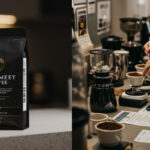
Why is Special Coffee More Valued? Exploring Its Unique Appeal
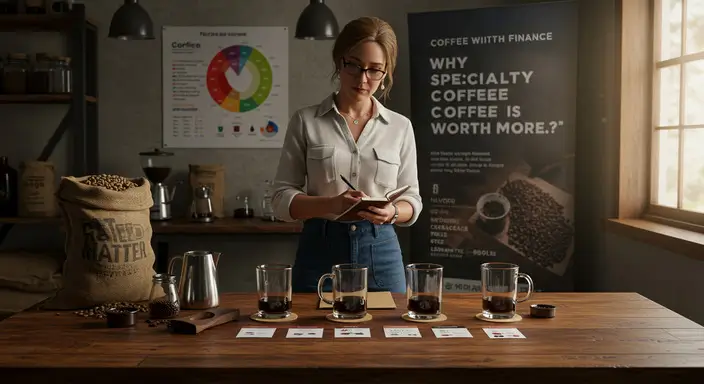
Table of Contents
ToggleWhat Defines Special Coffee?
Special coffee, often referred to as specialty coffee, is more than just a beverage—it’s an experience. Unlike regular coffee, which is often mass-produced, special coffee is crafted with meticulous care at every stage of its journey. Quality is the cornerstone of specialty coffee, defined by its exceptional flavor, aroma, and consistency. To earn the title of “specialty,” coffee must score 80 points or above on a 100-point scale by certified coffee graders, who evaluate factors like acidity, body, and aftertaste.
The Journey from Bean to Cup
The story of special coffee begins with the coffee bean itself. Arabica beans are the most commonly used in specialty coffee due to their complex flavors and lower caffeine content compared to Robusta. These beans are often grown in specific regions known as coffee belts, such as Ethiopia, Colombia, and Guatemala, where the climate and soil conditions are ideal for cultivation.
- Cultivation: Coffee cherries are handpicked at peak ripeness to ensure the best flavor.
- Processing: The beans are washed, dried, and sorted with precision, preserving their unique characteristics.
- Roasting: Roasters use tailored techniques to enhance the bean’s natural flavors, creating profiles ranging from fruity and floral to nutty and chocolatey.
- Brewing: Finally, the coffee is brewed using methods like pour-over, French press, or espresso, each method unlocking different nuances in the cup.
Every step in this journey is carefully managed to ensure that the final product is nothing short of extraordinary. From the farmer’s hands to your cup, specialty coffee is a testament to passion, skill, and dedication.
Superior Quality and Flavor
Specialty vs. Commercial Coffee
When it comes to coffee, not all beans are created equal. Specialty coffee stands apart from commercial coffee in terms of quality, sourcing, and craftsmanship. While commercial coffee often focuses on mass production and consistency, specialty coffee is meticulously curated, emphasizing quality over quantity. Specialty beans are typically grown in ideal climates, harvested at peak ripeness, and processed with care to preserve their natural flavors. This attention to detail results in a product that is not only superior in taste but also more sustainable and ethical.
Unique Flavor Profiles and Tasting Notes
One of the most captivating aspects of specialty coffee is its diverse and complex flavor profiles. Unlike commercial coffee, which often has a uniform taste due to blending and over-roasting, specialty coffee showcases the unique characteristics of its origin. From the fruity and floral notes of Ethiopian beans to the rich, chocolatey undertones of Colombian varieties, each cup tells a story of its terroir. Here are some examples of what you might discover:
- Ethiopian Coffee: Bright acidity, with hints of blueberry, jasmine, and citrus.
- Colombian Coffee: Balanced body, featuring caramel, nutty, and chocolate notes.
- Kenyan Coffee: Vibrant and wine-like, with flavors of blackcurrant and tomato.
These nuanced tasting notes are the result of meticulous farming, processing, and roasting techniques, making specialty coffee a truly gourmet experience.
Ethical and Sustainable Practices
Fair Trade and Direct Sourcing
When you sip a cup of special coffee, you’re not just tasting quality—you’re supporting a system that values fairness. Fair trade certification ensures that coffee farmers receive fair compensation for their hard work, helping them invest in their communities and improve their livelihoods. This system also promotes better working conditions and prohibits child labor, making it a win-win for both producers and consumers.
Many special coffee roasters go a step further by embracing direct sourcing. This means they build relationships directly with farmers, cutting out middlemen and ensuring that a larger portion of the profits goes back to the growers. Direct sourcing often results in higher-quality beans because roasters can collaborate with farmers to optimize growing, harvesting, and processing methods. It’s a model rooted in transparency and mutual respect.
Environmental Benefits of Special Coffee
Special coffee isn’t just good for people—it’s good for the planet too. Many specialty coffee farms practice sustainable agriculture, which includes techniques like shade-growing, organic farming, and water conservation. Shade-grown coffee, for instance, preserves biodiversity by providing habitats for birds and other wildlife, while organic farming avoids harmful pesticides and chemicals that can damage ecosystems.
Additionally, special coffee roasters often prioritize eco-friendly packaging and energy-efficient roasting processes. By choosing special coffee, you’re contributing to a greener future and helping to reduce the environmental footprint of your daily brew.
Here are some key environmental benefits of special coffee:
- Shade-grown farms protect forests and wildlife.
- Organic farming reduces chemical pollution.
- Sustainable practices conserve water and soil health.
- Eco-friendly packaging minimizes waste.
The Craft of Roasting and Brewing
How Roasting Enhances Flavor
Roasting is where the magic happens, transforming green coffee beans into the aromatic, flavorful beans we know and love. The roasting process unlocks the complex flavors hidden within the beans, balancing acidity, sweetness, and bitterness. Light roasts preserve the bean’s natural characteristics, often highlighting fruity or floral notes, while medium roasts bring out a fuller body and balanced flavor. Dark roasts, on the other hand, emphasize bold, smoky, and chocolatey tones.
Roasters carefully control temperature and time to achieve the perfect profile, ensuring each bean reaches its full potential. The art of roasting lies in understanding the bean’s origin, moisture content, and desired flavor outcome. This meticulous process is why speciality coffee often tastes so distinct and memorable.
Methods to Brew Special Coffee at Home
Brewing speciality coffee at home is both an art and a science. Here are some popular methods to elevate your coffee experience:
- Pour-Over (e.g., Hario V60, Chemex): This method allows you to control the water flow and extraction time, resulting in a clean, bright cup that highlights the coffee’s nuanced flavors.
- French Press: Ideal for those who enjoy a fuller-bodied coffee with rich, robust flavors. The metal mesh filter lets oils and fine particles through, adding depth to your brew.
- Aeropress: A versatile and portable option that produces a smooth, concentrated coffee. It’s perfect for experimenting with different grind sizes and steeping times.
- Espresso Machines: For those willing to invest, espresso machines deliver a rich, intense shot of coffee. Pair it with a milk steamer for lattes or cappuccinos.
To achieve the best results, always use freshly ground beans and filtered water. Experiment with grind size, water temperature (ideally between 195-205°F), and brewing time to find your perfect cup.
Community and Culture
The Role of Coffee in Local Economies
Specialty coffee plays a pivotal role in supporting local economies, especially in coffee-growing regions. Smallholder farmers often rely on coffee cultivation as their primary source of income, and the shift toward specialty coffee has opened up new opportunities for them. By focusing on high-quality beans, farmers can command better prices, which directly impacts their livelihoods and communities. This economic boost often translates into improved infrastructure, education, and healthcare in these regions.
Moreover, the specialty coffee movement encourages sustainable farming practices, which not only benefit the environment but also ensure long-term economic stability. When you choose specialty coffee, you’re not just enjoying a superior cup—you’re contributing to a global community that values fairness, sustainability, and quality.
Coffee as a Gourmet Experience
For many coffee lovers, specialty coffee is more than just a beverage—it’s a gourmet experience that engages all the senses. From the aroma of freshly ground beans to the intricate flavors in every sip, specialty coffee offers a journey of discovery. Unlike mass-produced coffee, which often prioritizes consistency over complexity, specialty coffee celebrates the unique characteristics of each bean and its origin.
Here are a few reasons why specialty coffee stands out as a gourmet experience:
- Flavor Profiles: Specialty coffee boasts a wide range of flavor notes, from fruity and floral to nutty and chocolaty, depending on the bean’s origin and processing method.
- Brewing Techniques: Advanced brewing methods like pour-over, AeroPress, or espresso allow you to extract the full potential of the beans, enhancing their complexity and depth.
- Artisanal Craftsmanship: Roasters and baristas play a crucial role in bringing out the best in specialty coffee, often treating it as an art form.
Whether you’re savoring a single-origin pour-over or indulging in a meticulously crafted latte, specialty coffee invites you to slow down and appreciate the artistry behind every cup.
Economic and Emotional Value
Why Consumers Are Willing to Pay More
Specialty coffee is often priced higher than your average cup of joe, and for good reason. The economic value of special coffee lies in its quality, craftsmanship, and the journey it takes from farm to cup. Consumers are willing to pay a premium because they recognize the expertise and effort involved in producing exceptional beans. From meticulous farming practices to precise roasting techniques, every step is designed to enhance flavor and create a unique experience.
Additionally, specialty coffee often supports sustainable and ethical practices. Many coffee lovers are willing to invest more when they know their purchase benefits farmers, promotes fair wages, and encourages environmentally friendly farming methods. This makes buying special coffee not just a personal indulgence, but a deliberate choice to support a better coffee ecosystem.
The Emotional Connection to Special Coffee
Beyond economics, special coffee holds emotional value for many enthusiasts. A great cup of coffee is more than a beverage—it’s a moment of comfort, a ritual, or even a way to connect with others. For some, brewing a carefully selected, high-quality coffee at home is a form of self-care, a way to start the day on a positive note.
There’s also a sense of discovery and adventure attached to specialty coffee. Exploring different origins, roasts, and brewing methods can feel like unraveling the story behind each bean. Whether it’s the terroir of a single-origin coffee or the artistry of a skilled roaster, every sip can evoke a sense of wonder and appreciation.
Finally, coffee often carries cultural and social significance. Sharing a carefully brewed cup with friends or family can create lasting memories, turning a simple drink into a meaningful experience. This emotional connection is what makes specialty coffee more than just a product—it’s a lifestyle, a passion, and a source of joy.
How to Appreciate and Choose Special Coffee
Tips for Selecting High-Quality Beans
Choosing the right coffee beans is the foundation of a great cup of coffee. Here’s how to identify high-quality beans:
- Look for freshness: Opt for beans with a roast date printed on the package. Freshly roasted beans (within 2-4 weeks) offer the best flavor.
- Check the origin: Beans from specific regions, like Ethiopia, Colombia, or Guatemala, often have unique flavor profiles. Single-origin beans are a great way to explore distinct tastes.
- Consider the roast level: Light roasts preserve the bean’s natural flavors, while dark roasts offer bold, smoky notes. Choose based on your preference.
- Buy whole beans: Grinding your beans just before brewing ensures maximum freshness and flavor.
- Trust reputable roasters: Purchase from specialty coffee roasters with a focus on quality and ethical sourcing.
Pairing Coffee with Food and Occasions
Pairing coffee with food can elevate both your brew and your meal. Here are some suggestions to enhance your experience:
- Breakfast: Pair a bright, acidic coffee like a Kenyan pour-over with pastries or a hearty breakfast sandwich.
- Dessert: A rich, chocolatey Brazilian coffee complements chocolate cake or brownies perfectly.
- Brunch: A smooth, balanced Colombian coffee pairs wonderfully with eggs benedict or quiche.
- Afternoon treat: A floral Ethiopian coffee goes well with fruit tarts or light snacks.
- Special occasions: Opt for a rare, small-batch coffee like a Geisha or Bourbon varietal to make the moment memorable.
Conclusion
Appreciating and choosing special coffee is an art that begins with understanding quality beans and extends to thoughtful pairings. By selecting fresh, ethically sourced beans and experimenting with flavors, you can transform your coffee ritual into a gourmet experience. Whether you’re brewing at home or exploring new roasts, remember that every cup tells a story—savor it.
FAQ
Q: How do I store coffee beans to maintain freshness?
A: Store beans in an airtight container in a cool, dark place. Avoid refrigeration, as moisture can compromise flavor.
Q: Can I pair coffee with savory dishes?
A: Absolutely! Try a medium-roast Costa Rican coffee with a cheese platter or a spicy dish for a delightful contrast.
Q: What’s the best way to try different coffee origins?
A: Many specialty roasters offer variety packs or sampler sets. This is a great way to explore flavors from around the world.
is a writer and editor at Coffee With Finance, blending her love for coffee, personal finance, and visual storytelling. She crafts engaging articles, curates site images, and shares brewing tips, bean origins, and practical money advice. Anna believes that managing finances, like making great coffee, should be intentional and rewarding — bringing clarity, warmth, and beauty to every story she tells.


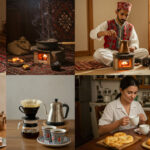










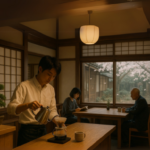




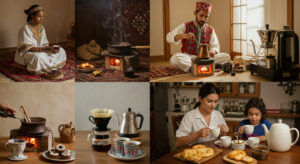








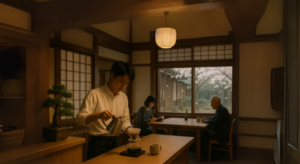
Post Comment